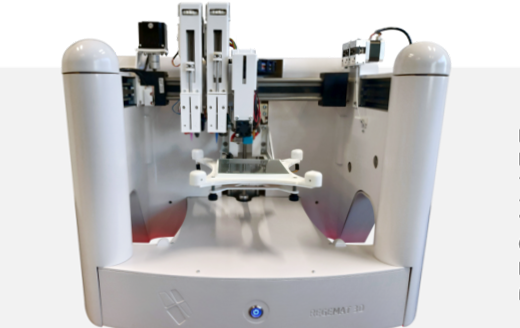Xpect-INX, a spin-off from the university of Ghent, has developed a technique for using a 3D printer to print human tissue using what it calls bio-ink.
At present, while 3D printers have been used to print an entire building, in the medical field they have been restricted to the construction of medical apparatuses such as implants, as well as models such as those used in facial reconstruction.
The idea of using 3D printing to make human tissue is not a new one, but now, Xpect-INX has developed a type of bio-ink which when used with a special 3D printer, can create workable substitutes for human tissue.
That, in principle, would allow for a cornea to be replaced on a patient’s eye without the need for a donor. The same principle would apply to many other organ tissues, for example for breast reconstruction after mastectomy, for repairs to the kneecap or for replacement of a faulty heart valve.
In the longer term, the techniques could even be capable of creating a human heart or liver for immediate transplant.
“3D printing of cells and tissues is very challenging,” said Ghent university researcher and co-founder of Xpect-INX, Dr Jasper Van Hoorick.
“3D-printed cells must be able to grow and function like normal human cells and interact with existing cells until the body can fully integrate them. The key to this is the use of appropriate and biocompatible materials, which we call bio-inks. These are material mixtures, which bear a strong resemblance to the natural cell environment. The bio-inks provide mechanical strength, a healthy growth environment for the cells and, moreover, they make it possible to process those cells via various 3D printing techniques.”
As the world searches for a vaccine to use against Covid-19, with all the delays entailed by testing in labs and in clinical trials, bio-inks and 3D printing offer a solution for the future. “For clinical studies, this technology could provide opportunities to culture cells or mini-organs as a model for testing new drugs,” Van Hoorick said. “In this way we could substantially reduce the number of animal experiments.”
Xpect-INX recently signed a distribution agreement with Regemat 3D, an international bio-printing firm based in Granada in Spain.
Alan Hope
The Brussels Times

